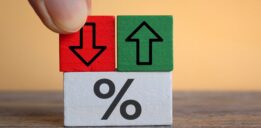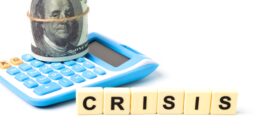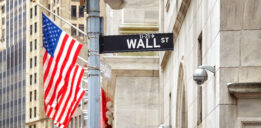Turbo-Capitalism Persists and It Will Cause Economic Collapse
If there were a single concept that could explain the causes of the 2008 financial crisis, few are better than “turbo-capitalism.” While the world has found ways to emerge from the crisis and the related recession, turbo-capitalism has not been addressed. Few, outside of a limited academic set, even talk about it. Yet they should, because, if allowed to continue, it will lead to economic collapse.
What Is Turbo-Capitalism?
Edward Luttwak, a world-renowned political scientist, was the first to use the term “turbo-capitalism” to describe the post-Cold War economic system in a popular book. The concept of turbo-capitalism explains better than globalization (a related phenomenon) what has happened to economics in the West since 1990. (Source: “Two Cheers,” The Economist, October 23, 2001.)
You may be familiar with the term “turbo.” It derives directly from the Latin word for a spinning top. It can also mean “whirlwind” or “spiral.”
The word has become most commonly associated with aero and automotive engines. In a gas- or diesel-powered piston engine, a turbocharger is a turbine attached to a compressor. The exhaust gases from the combustion stroke cause the turbo and compressor to spin, forcing the induction of a greater quantity of fuel-air mixture into the cylinders, increasing power.
Thus, turbo-capitalism intends to describe an enhanced or “souped-up”—but not necessarily better—form of market capitalism. Left to spin without adequate controls, turbo-capitalism will cause economic collapse. It already demonstrated this dubious quality in 2008.
Nothing has changed since then. It continues unhinged and it could spin out of control again, leaving economic collapse in its wake.
Turbo-capitalism might be the best way to describe the kind of development in the most advanced global powers. Most of these fall into the geopolitical camp of the West, and certainly the North Atlantic Treaty Organization (NATO).
Just as in the automotive context, the chief characteristic of turbo-capitalism is its power and speed. It’s much greater than anything that Adam Smith could have imagined and what characterized the development miracle born from the ashes of World War II, what we might describe as “regulated capitalism.”
Where Did the Concept of Turbo-Capitalism Originate?
Turbo-capitalism is what happened to capitalism after it no longer felt threatened by communism. For capitalism to survive the intensifying shock waves from the 1917 Russian Revolution during the Great Depression (and after World War I in Europe), some governments protected the system by adopting social shock absorbers to contain dangerous flirtations with fascism or communism.
President Roosevelt launched his New Deal precisely to soften the harshest aspects of capitalism in order to save it from the dominant ideologies of his time, as well as stimulating growth after the post-1929 economic collapse.
This approach lasted until January 1981. That’s when Ronald Reagan took office and altered the system, introducing an enhanced “laissez-faire” economy. That event marked the end of what philosopher Mark Lilla has defined as the “Roosevelt dispensation.”
After the end of communism and the dismantling of the Warsaw Pact (1991), even those who identified as liberals changed focus. They became more involved in issues of identity politics than in those of socio-economic fairness. Without any checks and balances, an unhinged form of capitalism emerged from the rubble of the Berlin Wall.
Capitalism’s Third—and Final—Wave?
Turbo-capitalism might be considered capitalism’s third wave. The first was the Industrial Revolution and the second was the New Deal or Keynesian (sometimes known as the Welfare State). The third wave, which could become the last, led us to the 2008 financial crisis and the Great Recession. It should have ended there. But it did not. The crisis left many people poorer. Yet it also allowed a few to become fabulously wealthier.
The number of millionaires and billionaires has increased even as the proverbial “middle class,” that venerable institution that best represented the American Dream, continues to disintegrate.
Few have understood how significant the effects of this shift have been. The “Great Recession” had a far greater effect than an economic collapse. It was a total crisis, affecting all aspects of most people’s lives, including political, economic, social, and moral aspects. Keynes gave way to Ayn Rand on steroids and neoliberalism/neoconservatism (they are similar with minor differences in foreign policy).
The socio-economic compass, which had pointed to “fairness” from 1933 to 1980, now shifted its magnetic polarity toward mad competition and total individualism. These might sound good on paper. In reality, they work less well. They produce societies where the rich cannot truly enjoy the fruits of their ingenuity or luck because they must worry about protecting their lives and property from the less-fortunate majority.
Think Paris in the weeks just before the mob assaulted the Bastille in 1789. Or think Caracas, Venezuela; Tegucigalpa, Honduras; or even St. Louis, Missouri or Detroit, Michigan—two of America’s most dangerous cities. (Source: “The most dangerous cities in America,” USA Today, October 1, 2016.)
The financial crisis that left tens of millions of people unemployed in Europe and America—while adding difficulties to those who remained employed with lower salaries, precariousness, and underemployment—has not ended. The stock market performance and a slight relief in the employment statistics have made it seem as if the world has entered a new phase of prosperity. Yet, in reality, the effects of the financial crisis have shown few signs of easing.
The main reason is that nobody has come up with an ideology to defeat, or even just to challenge, turbo-capitalism. Like all ideologies, they are blind highways that only end with a breakdown.
Trusting Sharks and Crocodiles to Behave in Front of Meat
Turbo-capitalism is leading straight toward economic collapse. Its most salient feature is to have allowed the free market—while focusing on finance rather than the “real economy”—to regulate itself.
That’s like trusting sharks to behave before a clearly exposed prey. It’s not a good idea. Unregulated capitalism wrecked the balance between actual productive activities (the kind that generates employment, for example) and the more predatory characteristics of finance. It distorted the global economy. Until the 1990s, financial markets (inefficient and speculative, though they were) were always subjugated to addressing the needs of the real economy.
Investors acquired shares of companies, which caused capital to grow. Shares represented fractions of corporations. Bonds and other debt instruments also helped.
New techniques, the infusion of highly sophisticated mathematics in the science-envying humanistic discipline of economics, and the availability of newly underemployed and unemployed Soviet scientists (made redundant in the disaster that was the post-Soviet Russia of Boris Yeltsin), accelerated the role and scope of finance.
Risky Finance Is Pure Turbo-Capitalism
Suddenly, the introduction of ever more sophisticated and risky options and derivatives (such as the subprime mortgage-backed “security”)—coupled with the greed and ruthlessness of Wall Street operators—rapidly inflated a financial bubble. It erupted in 2008. Those responsible paid nothing, compared to the deluge of bankruptcies, millions of job losses, and vanishing pension funds they left behind.
One of the most striking phenomena that the 2008 crisis caused was the transfer of the burden from the guilty to the innocent. The bankers, who instigated the crisis, asked for and obtained a government bailout. That produced a spike in the national debt, which required higher taxes in some cases, and cuts in many social services. They called these changes “austerity” measures. Still, taxpayers, regular employees, and managers had not been responsible for the crisis.
Meanwhile, most explanations focused on the technical aspects and on some failure at the “financial markets” or Wall-Street level. Most analysts, with few exceptions (such as Joseph Stiglitz, Robert Reich, or Paul Krugman) identified the solutions by adopting technical solutions at the market level.
President Barack Obama introduced more regulations to protect investors—The Dodd-Frank Wall Street Reform and Consumer Protection Act, for example. Nevertheless, the real problem was more systemic. It was a philosophical one. And nobody has had the courage to take it on. The sub-prime crisis of 2008 was merely a symptom of this disease of turbo-capitalism.
Turbo-capitalism is about the radicalization into ideology of the concept of the stock market as the focus of the economic system, without any safeguards in place to manage its inevitable excesses. This has metastasized, and it requires a systemic overhaul to prevent economic collapse.






